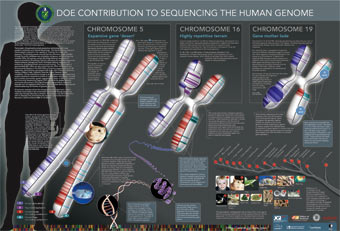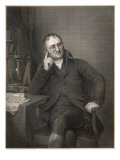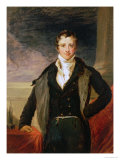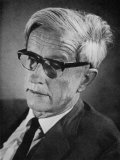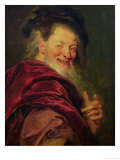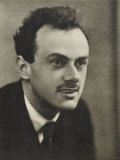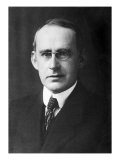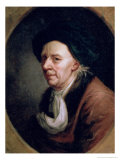|
|
|
|
|
|
|
|
|
|
|
|
|
|
SCIENCE:
PHYSICS & CHEMISTRY
|
|
|
|
|
|
|
|
|
|
|
|
|
|
|
|
|
|
|
 |
|
|
|
|
|
|
|
|
|

Henrik Dam,
Giclee Print
image not
currently available
|
Henrik Dam
b. 2-21-1895; Copenhagen, Denmark
d. 4-17-1976; Copenhagen
Henrik Dam was a physician and biochemist. He was awarded the Nobel Prize in Medicine in 1943 “for his work in discovering vitamin K and its role in human physiology.”
|
|
|
|
Sir Humphry Davy
b. 12-27-1778; Penzance, Cornwall, England
d. 5-29-1829; Geneva, Switzerland
Humphry Davy, FRS, was a physicist and chemist, best known for his discoveries of several alkali and alkaline-earth elements, contributions to the discoveries of the elemental nature of chlorine and iodine and the invention of the Davy lamp, a safety lamp for coal miners. Davy's laboratory assistant was Michael Faraday.
• The Mercurial Chemist: a Life of Sir Humphry Davy
|
|
|
|
Max Delbrück
b. 9-4-1906; Berlin, Germany
d. 3-9-1981
Delbruck was a biophysicist who made fundamental studies the established modern molecular biology. He shared the Nobel Prize in Physiology or Medicine for 1969 with Salvador Luria and Alfred Hershey.
|
|
|
|
Democritus
b. c. 460 BC; Greece
d. c. 370 BC
Democritus, a careful observor of nature, is considered by many to be the “father of modern science” and is also known as the ‘Laughing Philosopher’.
He is noted for his hypothesis that “everything is composed of atoms, which are physically, but not geometrically, indivisible; that between atoms lies empty space; that atoms are indestructible; have always been, and always will be, in motion; that there are an infinite number of atoms, and kinds of atoms, which differ in shape, size, and temperature”, and works in mathematics, anthropology, biology, physics and cosmology.
FYI - Democritus was one the most travelled philosophers of Ancient Greece. He was the son of a wealthy man and able to visited places as distant as India and Ethiopia, living in Egypt for five years.
Democritus quotes ~
• “Hope of ill gain is the beginning of loss.”
• “Raising children is an uncertain thing; success is reached only after a life of battle and worry.”
• “Everything existing in the universe is the fruit of chance and necessity.”
• “By desiring little, a poor man makes himself rich.”
• Democritus: Science, The Arts, and the Care of the Soul
|
|
|
|
Paul Adrien Maurice Dirac
b. 8-8-1902; Bristol, England
d. 10-20-1984
Dirac, a theoretical physicist and a founder of the field of quantum mechanics, formulated the so-called Dirac equation, which describes the behavior of fermions and which led to the prediction of the existence of antimatter.
Dirac and Erwin Schrodinger shared the Nobel Prize in physics for 1933 “for the discovery of new productive forms of atomic theory.”
• The Principles of Quantum Mechanics
|
|
|
|
Freeman Dyson
b. 12-15-1923; Crowthorne, Berkshire, England
Theoretical physicist and mathematician Freeman Dyson is famous for his work in quantum field theory, solid-state physics, astronomy and nuclear engineering. Dyson is a member of the Board of Sponsors of the Bulletin of the Atomic Scientists.
Freeman Dyson quotes ~
• “My book The Sun, the Genome, and the Internet (1999) describes a vision of green technology enriching villages all over the world and halting the migration from villages to megacities. The three components of the vision are all essential: the sun to provide energy where it is needed, the genome to provide plants that can convert sunlight into chemical fuels cheaply and efficiently, the Internet to end the intellectual and economic isolation of rural populations. With all three components in place, every village in Africa could enjoy its fair share of the blessings of civilisation.” (1999) describes a vision of green technology enriching villages all over the world and halting the migration from villages to megacities. The three components of the vision are all essential: the sun to provide energy where it is needed, the genome to provide plants that can convert sunlight into chemical fuels cheaply and efficiently, the Internet to end the intellectual and economic isolation of rural populations. With all three components in place, every village in Africa could enjoy its fair share of the blessings of civilisation.”
• “To answer the world's material needs, technology has to be not only beautiful but also cheap.”
|
|
|
|
Arthur Eddington
b. 12-28-1882; Kendal, England
d. 11-22-1944; Cambridge
Astrophysicist and mathematician Arthur Eddington is best remembered for his work that introduced and explained Einstein's theory of general relativity to the English-speaking world when WWI interfered lines of scientific communication. He also conducted an expedition to observe the Solar eclipse of May 29,1919 that provided one of the earliest confirmations of relativity.
The natural limit to the luminosity of stars, or the radiation generated by accretion onto a compact object, called the Eddington limit, is named in his honour. Eddington was also a devote Quaker.
• Practical Mystic: Religion, Science, and A. S. Eddington
|
|
|
|
Albert Einstein
b. 3-14-1879; Ulm, Germany
d. 4-18-1955; Princeton, NJ
"Imagination is more important than knowledge."
Albert Einstein revolutionized accepted views of the universe with his theories on the nature of energy, matter, motion, time and space. He was awarded the Nobel Prize for Physics in 1921.
• more Albert Einstein posters
|
|
|
|
Gertrude Elion
b. 1-23-1918; NYC
d. 2-21-1999; Chapel Hill, NC
Biochemist Gertrude Elion was awarded the 1988 Nobel Prize for Physiology or Medicine in 1988 with James W. Black and George H. Hitchings “for their discoveries of important principles for drug treatment.”
Gertrude Elion quotes ~
• “Don't be afraid of hard work. Nothing worthwhile comes easily. Don't let others discourage you or tell you that you can't do it. In my day I was told women didn't go into chemistry. I saw no reason why we couldn't.”
• “I think it's a very valuable thing for a doctor to learn how to do research, to learn how to approach research, something there isn't time to teach them in medical school. They don't really learn how to approach a problem, and yet diagnosis is a problem; and I think that year spent in research is extremely valuable to them.”
• “It is important to go into work you would like to do. Then it doesn't seem like work. You sometimes feel it's almost too good to be true that someone will pay you for enjoying yourself. I've been very fortunate that my work led to useful drugs for a variety of serious illnesses. The thrill of seeing people get well who might otherwise have died of diseases like leukemia, kidney failure, and herpes virus encephalitis cannot be described in words.”
• “Maybe I was young and 'cute' (after all, I was only twenty then), but I've learned over the years that when you put white lab coats on chemists, they all look alike!”
• “People ask me often [whether] the Nobel Prize [was] the thing you were aiming for all your life, and I say that would be crazy. Nobody would aim for a Nobel Prize because, if you didn't get it, your whole life would be wasted. What we were aiming at was getting people well, and the satisfaction of that is much greater than any prize you can get.”
• “I had fallen in love with a young man..., and we were planning to get married. And then he died of subacute bacterial endocarditis... Two years later with the advent of penicillin, he would have been saved. It reinforced in my mind the importance of scientific discovery...”
• “What greater joy can you have than to know what an impact your work has had on people’s lives? The thrill of seeing people get well who otherwise might have died cannot be described in words.”
• “It’s amazing how much you can accomplish when you don't care who gets the credit.” (also attributed to Harry S Truman)
|
|
|
|
Leonard Euler
b. 4-15-1707; Basel, Switzerland
d. 9-18-1783; St. Petersburg, Russia
Pioneering mathematician and physicist Leonard Euler made important discoveries in the fields of infinitesimal calculus, graph theory, mechanics, fluid dynamics, optics, and astronomy. He also introduced much of the modern mathematical terminology and notation.
• Euler: the Master of Us All
|
|
|
previous page | top | next
Famous Chemist & Physicists List | a | b | c | D-E | f | g | h | i-j-k | l | m | n-o | p | q-r | s | t | u-z
|
|
I have searched the web for visual, text, and manipulative curriculum support materials - teaching posters, art prints, maps, charts, calendars, books and educational toys featuring famous people, places and events - to help teachers optimize their valuable time and budget.
Browsing the subject areas at NetPosterWorks.com is a learning experience where educators can plan context rich environments while comparing prices, special discounts, framing options and shipping from educational resources.
Thank you for starting your search for inspirational, motivational, and educational posters and learning materials at NetPosterWorks.com. If you need help please contact us.
|
|
|


